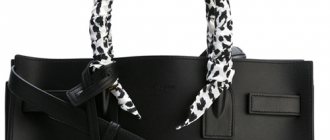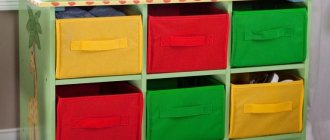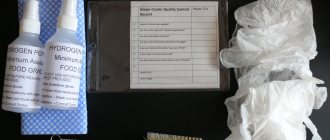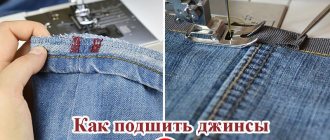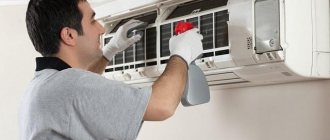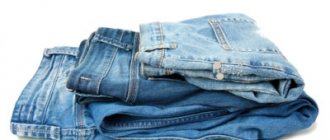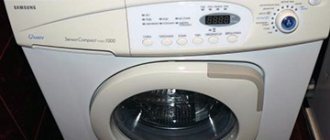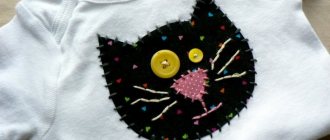Tuning and auto gadgets / From Autoclub
- Using wax crayons
- Video on using a wax marker
- Polishing the bumper with a grinder
- Removing spot chips by touching up
Photo instructions for repairing chips
- How to professionally remove chips - video
- Sequence of actions in photographs
The front bumper of a car is the body part most susceptible to all kinds of influences, both mechanical and chemical. This is where the first abrasions and scratches appear in the “life” of a car, and later chips and cracks may appear. The rear body kit, although it suffers to a lesser extent, is also not protected from all kinds of impacts. But this does not mean that after the first defects appear, you need to contact a car repair shop. Considering that there are a variety of car cosmetics and chemicals on sale today, you can remove most minor damage to the paintwork yourself, having first studied the coating restoration technique proposed in this material.
Classification of defects and methods of elimination
To successfully remove damage that appears on a car bumper, you need to take the following steps:
- Examine and classify the defect.
- Choose a method to remove it.
- Purchase the necessary materials.
- Repair the damage.
Advice. The nature of scratches or cracks in the coating is best studied on a cleanly washed car. So start diagnosing after washing and drying the body or at least the damaged bumper.
These are minor scratches that only affected the varnish.
Take a good look at the defects and touch them to roughly estimate their depth. Then select the appropriate option from the list:
- small, barely palpable scratches, but clearly visible visually;
- deep scratches and small cracks where the nail clings;
- large cracks and chips of the paintwork down to the very base;
- holes, dents and tears in the base of the bumper (plastic or metal).
A few small scratches and shallow abrasions are among the simplest defects, to eliminate which it is often not even necessary to remove the body kit from the car. There is unlikely to be any need for tinting, but only polishing, since only the top layer of varnish will be affected. On light colors, such depressions appear due to the fact that dirt gets into them.
This type of wear can be removed by polishing.
Single deep grooves and cracks are formed from minor mechanical impacts and are eliminated by local touch-up. It is advisable to remove the bumper from the car to make it easier to work with.
Unsuccessful driver maneuvers and stones flying from oncoming traffic are the cause of large cracks and sometimes flying paint. To remove such damage, you will have to resort to partial or complete repainting of the element, which already requires some skills.
Here the paint has been stripped down to the base; painting is indispensable.
Advice. Before you take on painting yourself, visit a car shop and calculate how much it will cost to purchase materials. In some cases, for example, with domestic cars, it is easier to buy a new painted bumper than to mess with the old one.
Repairing damage to the integrity of the bumper itself after a rupture or dent is a task for a professional; it is unlikely that it will be possible to repair the hole with your own hands. And the money won’t be cheap, so it’s worth thinking about replacing the body kit.
The hole requires serious repairs or replacement of the bumper
At home, we can deal with mild and moderate defects using the following methods:
- filling small cavities with a wax pencil and manual polishing;
- machine polishing;
- filling deeper cracks with putty and painting.
How to protect a plastic bumper from chips and scratches
Of course, there are many ways to remove scratches from a bumper, but it is better to prevent damage than to repair it later. The methods are available and will definitely cost less than painting over the damaged area. You can do some protection methods yourself. Let's look at some of them:
- Kanguryatnik . This is a grille that is placed on the front of the bumper. Able to protect against scratches, dents and damage. You can make it yourself.
- Masking tape . They wrap the bumper on the front and back sides. It protects not only from scratches, but also from dirt.
- Molding . This is a strip made of plastic that is attached to the bumper. Able to protect against minor damage.
- Silicone Case . Gel used to treat the bumper before a trip. It creates a protective ball, thereby preventing minor damage.
There are really many ways to protect your bumper, and some of them are quite affordable. You can make them yourself, saving money, or you can buy them, saving time. You decide. But a protected bumper will last longer, and you won’t have to spend money and your own time on eliminating scuffs, bumps, dents and scratches. Of course, such methods will not protect against dents resulting from an accident, but it is better than nothing.
Using wax crayons
This method is effective for repairing shallow single scratches that have not affected the paint layer. To remove such defects, you need to prepare the following materials:
- white spirit or galosh gasoline (nefras);
- wax pencil;
- wax-based polish;
- soft rags.
This is what the Fix it Pro wax marker looks like with attachments
Reference. The retail chain offers a wide selection of cosmetics for car body treatment from various manufacturers. Fix it Pro and ASTROhim COLOR WAX wax markers made in the USA have proven themselves well in practice, and among polishes you should choose Turtle Wax COLOR MAGIC PLUS liquid.
Polishing liquid Turtle Wax COLOR MAGIC PLUS with wax
The procedure for removing minor damage does not require any special conditions other than positive temperature in the room or street where it will be carried out. Before doing this, it is important to thoroughly wash and dry the bumper, and then proceed in this order:
- Degrease the scratch with a rag soaked in white spirit and let it dry.
- Open the cap of the pencil and carefully fill the groove with wax. When applying, do not press hard on the marker, and remove excess wax protruding along the edges with a dry cloth.
- After reading the instructions for using the polish on the packaging, soak a rag in it and polish the area of the defect. If necessary, repeat the operation several times.
Before repairing, the body kit must be washed thoroughly
Attention! Do not use acetone or solvents based on it for degreasing; they are not capable of decomposing fats, but they have a detrimental effect on the protective layer of varnish.
The scratch is filled with wax using a pencil
As you can see, the procedure is quite simple and does not require much time; removing one scratch will take no more than 15 minutes. But you must understand that such measures are temporary, since the wax coating is short-lived and is gradually removed when washing the car. Therefore, processing with a wax pencil is practiced in order to delay the moment of machine polishing or painting.
Reference. Cosmetic repairs using wax-based products are relevant during the pre-sale preparation of a car, because it allows you to improve the appearance without significant financial costs. The Fix it Pro marker costs about 7 USD. e., and Turtle Wax COLOR MAGIC PLUS polish - about 12 cu. That is, but in terms of consumption they last for a long time.
Cheap auto chemicals as a means to remove streaks on plastic
The cheapest, fastest and easiest, but only temporarily effective way to update plastic external elements is.
application of special products for plastic. That is, the use of auto chemicals! With its help, you can quickly give a black, lightened element an original color. For example, a bottle of “Color restorer and polish for plastic body parts and tires” Turtle Wax will cost about 400 rubles market.yandex.ru
This polish is enough for several restoration operations. Simply apply the product to a washed, dry, clean surface using a cloth to a small area. 3-5 minutes - and the product is absorbed. Wipe off any excess with a napkin or clean cloth. Ready!
It is worth noting that such a drug can also denigrate tires, seals and even. rusty black steel rims - a silicone-based composition not only preserves rubber, but also effectively masks rust on the wheels.
Minuses
This method has significant disadvantages. Unfortunately, at the latest on the third day or after the first rain, not a trace of the chemical will remain. The plastic will become faded again. Of course, polish or sprays cannot help with deep wounds on the bumper, and they also smell significantly. Especially on a sunny warm day. You will definitely feel a foreign smell even in the interior of your car.
Polishing the bumper with a grinder
When the paintwork is completely covered with a network of small and deep scratches, only machine polishing will help remove them. The technology is also applicable in cases where there has been light contact with another car, causing abrasion to form on the body kit. It is better to carry out the procedure indoors so that during processing dust does not get into the defect area, acting as an abrasive. Reason two: it is not allowed to polish a surface heated by the sun.
To complete the work you will need:
- grinding machine with polishing wheels;
- sandpaper No. 2000 with fine grain;
- There are two types of polishing paste - starting and finishing, it is better to take the latter to match the color of the car;
- degreasing liquid (nefras, white spirit);
- tube - corrector with paint matched to the color of the car;
- rags, antistatic wipes;
- protective glasses.
Nefras is one of the best degreasers
Advice. Buying a grinder is an expensive pleasure; it is not advisable to purchase it for 1-2 treatments, unless you are going to do professional polishing. It's easier to rent equipment. As a last resort, you can use an electric drill with appropriate attachments.
After initial sanding, the scratches look like this:
Removing multiple deep scratches begins with removing the bumper and thoroughly washing and drying it. If there is foreign paint left on the surface from contact with another car, remove it with gasoline or white spirit. An important point: you can repair the bumper and remove traces of contact with another car only after you have fully documented the accident and recorded it with the insurance company, otherwise you may be left without payment.
Any scratches found are touched up using a tube with a mini brush.
Machine polishing is carried out according to the following algorithm:
- Stretch the sandpaper onto a flat piece of wood. Wet it with water and clean all scratched areas. Maintain even and gentle pressure, otherwise you will erase all the varnish to paint.
- Rinse the bumper with water, dry and degrease.
- Apply a coarse abrasive polish to the surface, give it a minute to harden and begin polishing, setting the wheel speed to within 2000 rpm. Periodically test the coating by touch to monitor its heating. The temperature should be what your hand can tolerate, no more.
- Wash the body kit again and examine the result after drying. If deep scratches are visible in the paint layer, degrease them and carefully apply the coloring composition from the corrector 2-3 times with breaks for drying (at least 10 minutes).
- Apply a coat of finishing polish and repeat the sanding procedure. You may have to do it several times for full effect. To ensure a uniform bumper finish, polish the entire surface.
- Wash and completely dry the body kit.
Applying polishing paste
Advice. During final polishing, do not try to cover more of the surface, but rather sand in sections so that the applied compound does not have time to harden.
Gloss is achieved by machine polishing
Of course, specialists will perform such procedures better than you. But they will ask for a price of several thousand rubles (depending on the damage). It may not be possible to create a flawless appearance and completely remove all scratches, but overall the car will look much better, and the costs will be limited to the cost of materials. To secure the top layer of the coating, it does not hurt to apply a polish containing wax to it.
The result shows that not 100% of the defects were removed.
Using fire on scratches
An open fire is brought to the damaged surface.
- Then you need to wait for everything to cool down.
- Soot is removed with an alcohol wipe.
Removing spot chips by touching up
Such defects often appear on the front bumper from small stones. They knock off pieces of paint, causing conspicuous bare spots measuring 2-6 mm in size. There is a simple way to eliminate them, for which you will need:
- fine-grained sandpaper No. 1500 and 2000;
- degreaser and rags;
- thin stationery knife;
- primer, paint and varnish in small aerosol cans;
- thin wooden sticks with a pointed end (toothpicks will do);
- grinder and finishing polishing paste;
- glasses.
Chip repair kit
All stages of work, except polishing, can be performed outdoors at above-zero air temperatures. There is no need to remove the bumper; wash and dry it, then proceed to repair chips, following the following procedure:
- Using a utility knife, remove accumulated dirt and pieces of paint that are ready to break off from the recesses.
- Dip a toothpick in white spirit to remove dust from the chips.
- Sand a small area (up to 3 cm) around the defect with 1500 sandpaper moistened with degreaser. Then rinse the indentations again with a stick.
- Spray primer from a can onto a sheet of paper, and from there take it with a toothpick and carefully fill the inside of the chip.
- After the primer has dried, repeat the previous step, only using paint. When it dries, the chip needs to be cleaned again with sandpaper in a degreaser. The goal is to remove the coloring compound that has got on the old gloss.
- Apply the varnish with a stick. The result should be a speck that rises slightly above the surface.
- After 24 hours, sand the defect area with sandpaper No. 2000, generously moistened with water. This will remove any high spots from the hardened varnish and prepare the surface for polishing.
After wiping the area dry with a rag, polish it with a grinder with a fine abrasive paste, being careful not to cover a large area. Finally, apply polish with added wax to the bumper.
Photo instructions for repairing chips
Dirt is removed with the tip of a utility knife
After cleaning with a knife, the chips should be washed and degreased with a stick.
Sandpaper No. 1500 is used for cleaning.
The paint is taken with a toothpick and placed in the recesses
Here you can see that the dried varnish protrudes above the surface.
The last stage is polishing
How to professionally remove chips - video
Diagnosis of scratches
First you need to wash the bumper thoroughly with shampoo or shower gel. Soapy water will also work.
- Everything is wiped dry.
- The surface is degreased with a special product. White spirit will also work.
- Already on a washed bumper, you can carefully examine the scratch and then decide how to remove it.
Repair by painting
Unfortunately, cracks and deep grooves in the paintwork can only be dealt with by touching up the paint. Be prepared in advance that achieving an ideal appearance is quite difficult, although you need to strive for it. Accordingly, please have patience and time, and also prepare the following materials:
- sandpaper No. 300 and 1500;
- automotive putty;
- primer and varnish in aerosol cans;
- paint selected by color number;
- rubber spatula;
- masking tape and polyethylene;
- degreasing composition;
- rags, napkins;
- rubber gloves, respirator;
- polishing kit, whose components are listed in the previous section.
Note. Car paint can be found in an aerosol can, but it is difficult to achieve a high-quality finish with it. The ideal tool for touching up a bumper is a spray gun powered by a compressor.
It's good when you have such a set of equipment at home
Painting work must be carried out indoors, where there is no dust and ventilation is provided. The ambient air temperature should not be lower than +10, otherwise you will have to organize heating and use a hairdryer or fan heater for drying. As in the previous case, the bumper should be removed, washed and dried thoroughly. The next steps are:
- Inspect the edges of the crack and remove any paint that tends to fall off. Take a rough sandpaper, put it on a wooden block and clean the defect by wetting the tool with water. You need to sand to the very bottom of the crack, trying to minimally capture the paintwork around it. Make sure that the difference where the crack passes is not felt by your hand.
- In the same way, clean the area to be treated with fine sandpaper to rub out scratches from rough sandpaper.
- Degrease the cleaned area and cover the edges with tape so as not to splash the rest of the body kit with primer and putty.
- After studying the instructions on the package, prepare the putty and apply it to the damaged area. The thickness of this layer should be slightly higher than the rest of the surface so that it can be conveniently leveled. Allow the putty to cure for the required time (about 30 minutes).
- Repeat sanding with two types of sandpaper to level the area. If the putty was applied unsuccessfully and after cleaning, indentations appear, they will have to be puttied again.
- Wipe the repair area with a rag moistened with a degreaser, then apply 2 layers of primer from a can with 10-minute intervals for hardening. Don't forget to mix the soil by shaking the container.
- Using sandpaper No. 1500, carefully sand the hardened layer of primer and degrease again.
Advice. Take your time when performing work and strictly adhere to the drying time indicated on the packaging. If the garage is cool, warm up the bumper with a hairdryer and increase the drying period by 5-15 minutes.
When everything is ready for touch-up, shake the can (you can hear the ball inside) and spray the paint onto the repair area from a distance of 20 cm in successive horizontal movements. You cannot stop, otherwise drips will form. After letting it sit for 10-15 minutes, apply a second layer, followed by a third. The container must be shaken throughout the application procedure.
When the paint has completely dried, 2-3 protective layers of varnish must be applied to the surface in the same way. The last stage is polishing, performed 1 day after varnishing. Perform the polishing process as described above.
Sequence of actions in photographs
Deep cracks are cleaned down to the base
If the bumper is not removed from the car, you need to protect the headlights and other parts of the body
The putty layer is smoothed with sandpaper
After puttying, primer is applied to the surface
The protective layer of varnish is also applied from a can
After the paint has completely dried, the bumper is polished
Video of the painting process
Using a hair dryer for deep damage
Everything is done very simply.
- All you need is a hairdryer and degreaser.
- Use a hair dryer to treat only unpainted areas.
- First, the surface is cleaned of dirt and degreased.
- Then the damaged area is heated using a hair dryer. Due to the high temperature, the plastic will melt.
- The plastic should not get very hot.
Pros of a hair dryer
- Just.
- Available.
- Anyone can do it.
Cons of a hair dryer
- If handled carelessly, the plastic may be damaged.
- Only used if the bumper is not painted.
Cheap auto chemicals as a means to remove streaks on plastic
The cheapest, fastest and simplest, but only temporarily effective way to update plastic external elements is... applying special products for plastic. That is, the use of auto chemicals! With its help, you can quickly give a black, lightened element an original color.
For example, a bottle of “Color restorer and polish for plastic body parts and tires” Turtle Wax will cost about 400 rubles market.yandex.ru
This polish is enough for several restoration operations. Simply apply the product to a washed, dry, clean surface using a cloth to a small area. 3-5 minutes - and the product is absorbed. Wipe off any excess with a napkin or clean cloth. Ready!
It is worth noting that such a preparation can also blacken tires, seals and even... rusty black steel rims - a silicone-based composition not only preserves rubber, but also effectively masks rust on the wheels.
Minuses
This method has significant disadvantages. Unfortunately, at the latest on the third day or after the first rain, not a trace of the chemical will remain. The plastic will become faded again. Of course, polish or sprays cannot help with deep wounds on the bumper, and they also smell significantly. Especially on a sunny warm day. You will definitely feel a foreign smell even in the interior of your car.
The most persistent “chemistry” for blackening
The Finish Black Plastik & Vinyl Restorer solution is one of the most expensive restoration options we found. True, the drug is mainly sold abroad, for example on Amazon.com
A 12 ounce (355 ml) bottle costs RUB 1,600, but it is one of the few products that contains a large amount of black plastic dye.
Since the product contains a large amount of pigments, even a minimal amount of it qualitatively colors the material black. A small amount applied to the black strip using a sponge applicator or cloth is enough to turn the element black - and it will be black with an optimal matte sheen. Still, it's not paint. After cleaning, the black bars remain black. In a month they will also be black. This thing works well!
Adviсe
Industrial pencils, abrasive gels, and polishing pastes effectively remove defects from plastic, but they are quite expensive.
Available tools that can be found in the arsenal of any housewife will come to the rescue:
- Toothpaste. The method is suitable for cleaning plastic screens and displays. Apply a small amount of product to the damaged surface and rub in in a circular motion. When the surface dries, the residue should be washed off with a damp cotton swab.
- Vegetable oil. The liquid masks minor scratches and adds shine to the plastic. Apply 3-5 drops to the damaged surface and polish until the characteristic greasy drops disappear.
- Baking soda. The abrasive acts like toothpaste. Add water to the powder until it reaches a paste consistency, rub into the surface, and rinse off any remaining residue.
The methods are not suitable for eliminating deep traces of mechanical damage.
If you are interested in how to remove small and deep scratches from various surfaces and objects, take a look at this section.
